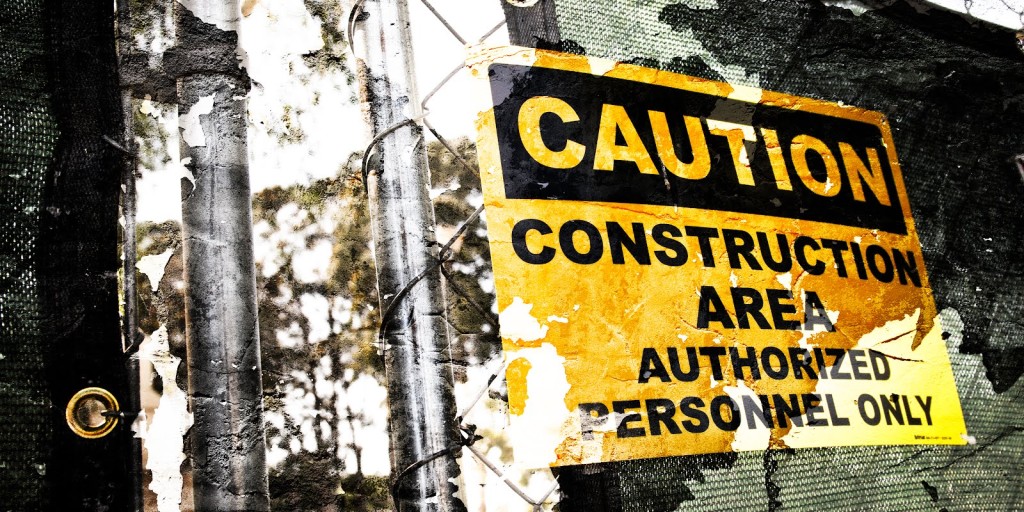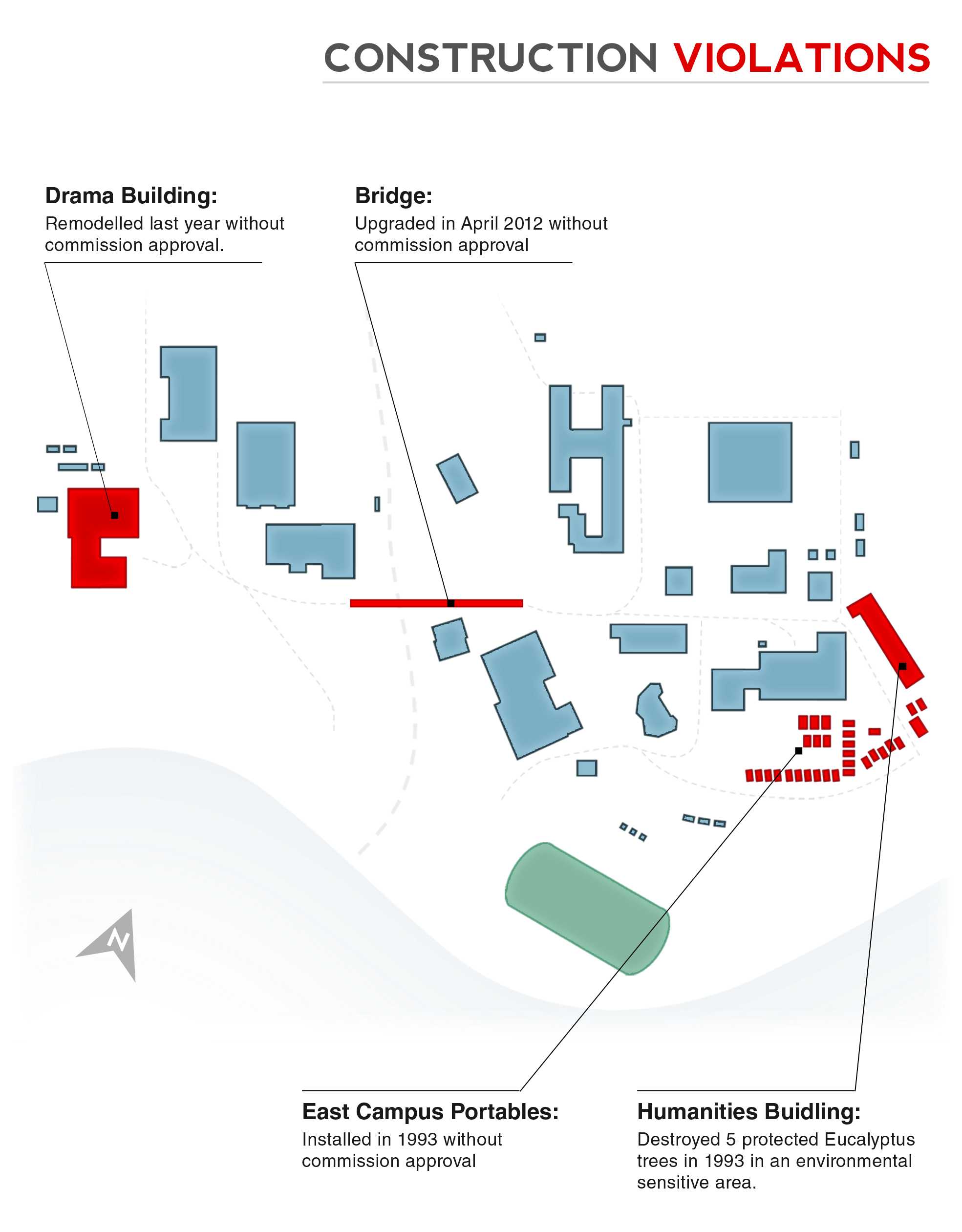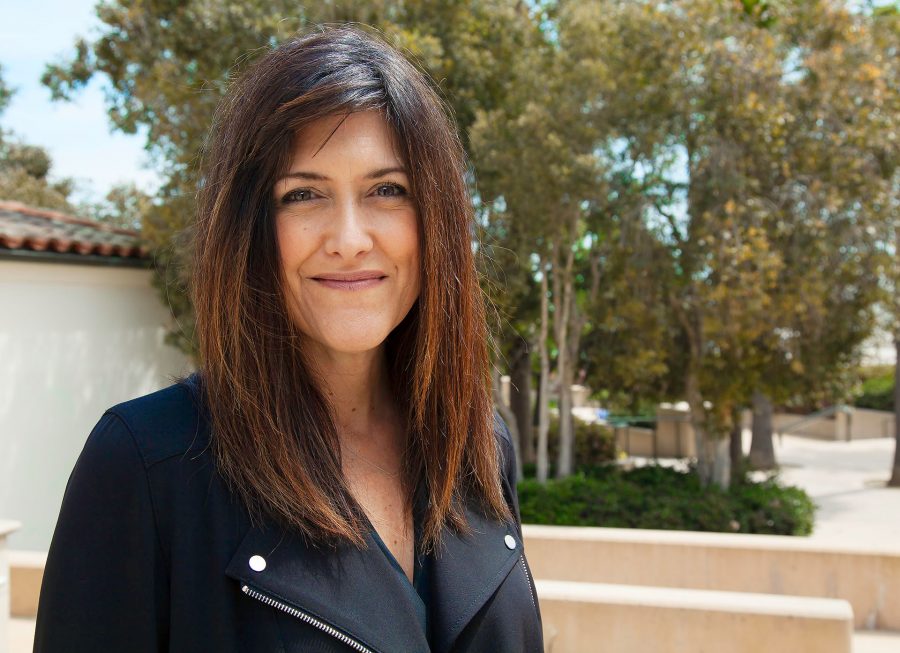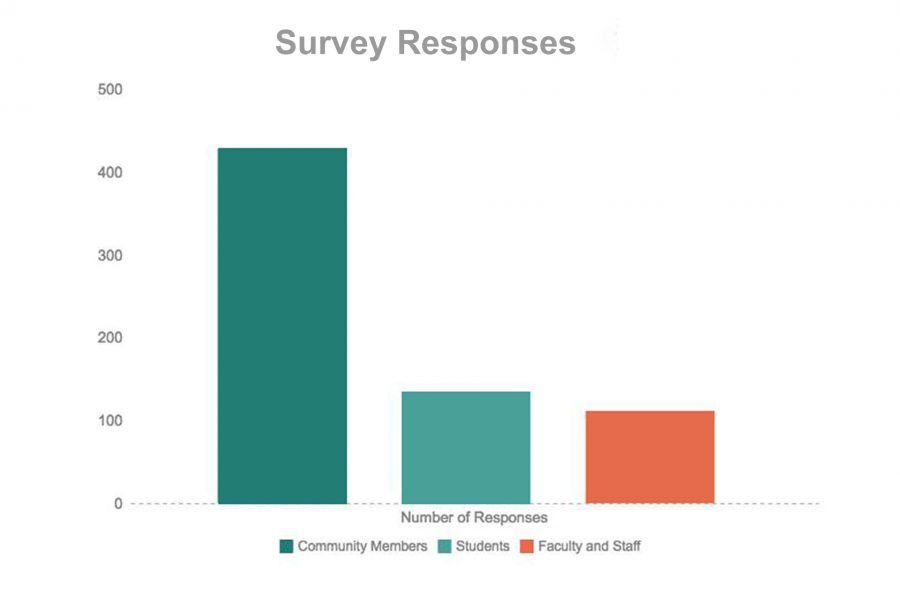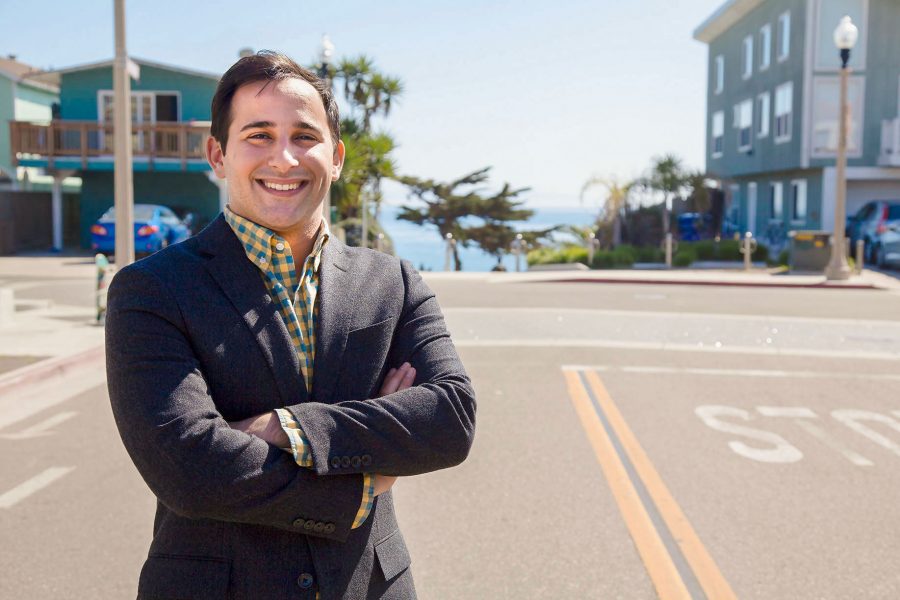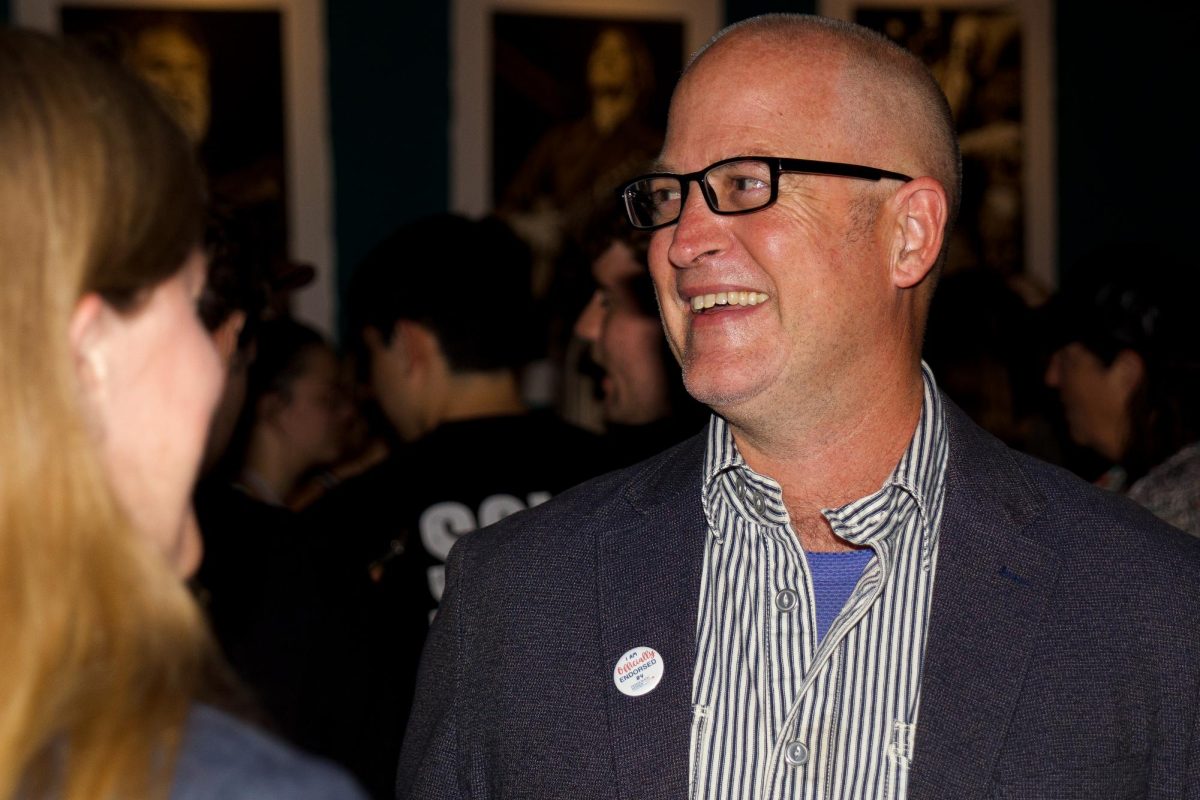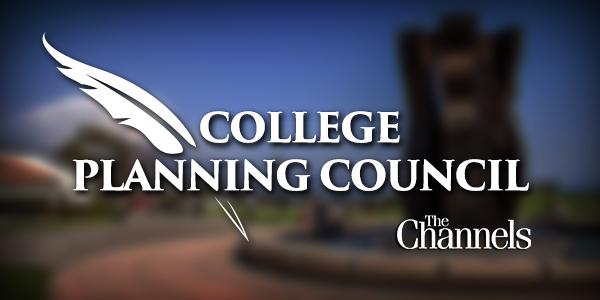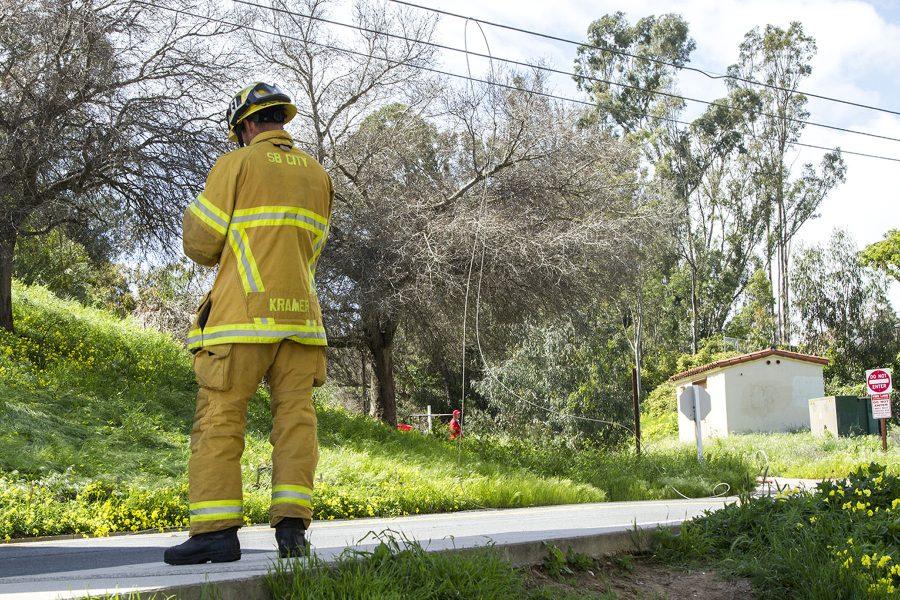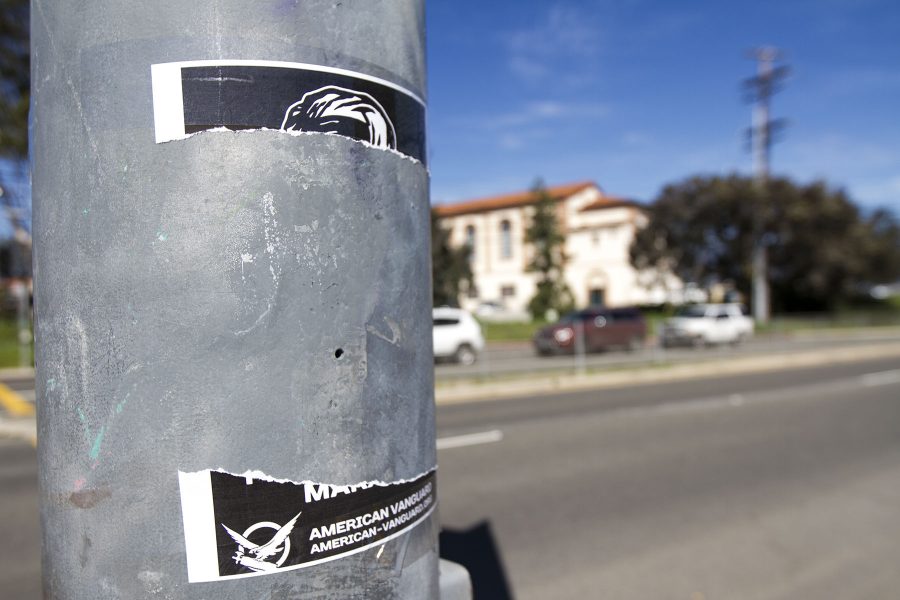City College is currently stuck in a legal process with the California Coastal Commission that is delaying parts of the Humanities Building remodel.
The college submitted a proposal to the Coastal Commission this past April to gain approval of the Humanities Building renovation project; a proposal they assumed would be easily approved. This led to the commission determining that two additions had been made to the building without their approval and prompted them to conduct an investigation of any other possible violations occurring on campus.
“They are ticked,” said Superintendent-President Dr. Lori Gaskin at the Nov. 10 Academic Senate meeting. “We have not done our due diligence these last decades.”
The commission investigated by doing a fly-over of City College campus and in addition to the violations associated with the Humanities Building, they determined three other projects that were completed without approval. These included the Drama Building remodel finished last year, the upgrades to the bridge linking East and West Campus in April 2010 and the installation of the East Campus portable buildings in front of the Campus Center in 1993.
“That’s why it’s a violation and not an application; this is retroactive,” said Julie Hendricks, director of facilities and campus development. “They’re saying ‘naughty, naughty, you did these things without our approval.’”
Hendricks said the Humanities Building is the most time-sensitive issue as it is currently under construction and won’t be completed until the commission approves the construction. Part of the remodel project has been completed but the outdoor workshop area, where five Eucalyptus trees were destroyed in 1993, is still waiting on commission approval.
“There is not a lot we can really do about the other projects. They’re done,” said Hendricks. “Our primary concern is that Humanities Building.”
To get a project approved by the Coastal Commission, as City College must do for all major construction, a proposal must be sent to the regional district office located in Ventura. From there, the commission sends it to a headquarters office in San Francisco where a board votes on whether to allow the proposal or not.
Steve Hudson, district manager of the California Coastal Commission’s South Central Office, pointed out that there are certain processes the college can take to prevent violation.
“Is there sensitive habitat, and if so, is there an adequate setback for any new developments?” he asked. “The college hasn’t come forward with all the resolutions yet.”
The commission is recommending the college replant the Eucalyptus trees outside the Humanities Building to help restore the environmentally sensitive area. Dr. Gaskin is proposing to build a new $18.7 million West Campus classroom building to replace the East Campus portables, many of which, in addition to commission violations, were also found to be unsafe in a recent structural assessment.
Hendricks is anticipating the Humanities Building proposal to be on the commission’s January agenda for approval. She said administrative faculty members are optimistic, but preparing for the worst if the proposal fails.
“We don’t want to focus too many resources on the B plan just yet,” she said.
The Board of Trustees will meet on Thursday, Oct. 25 and will decide whether or not to approve the proposal for the new classroom building.
The California Coastal Commission can be reached by calling (415) 904-5200 or by visiting their website at www.coastal.ca.gov.
Infographic by Øystein Grønvold


